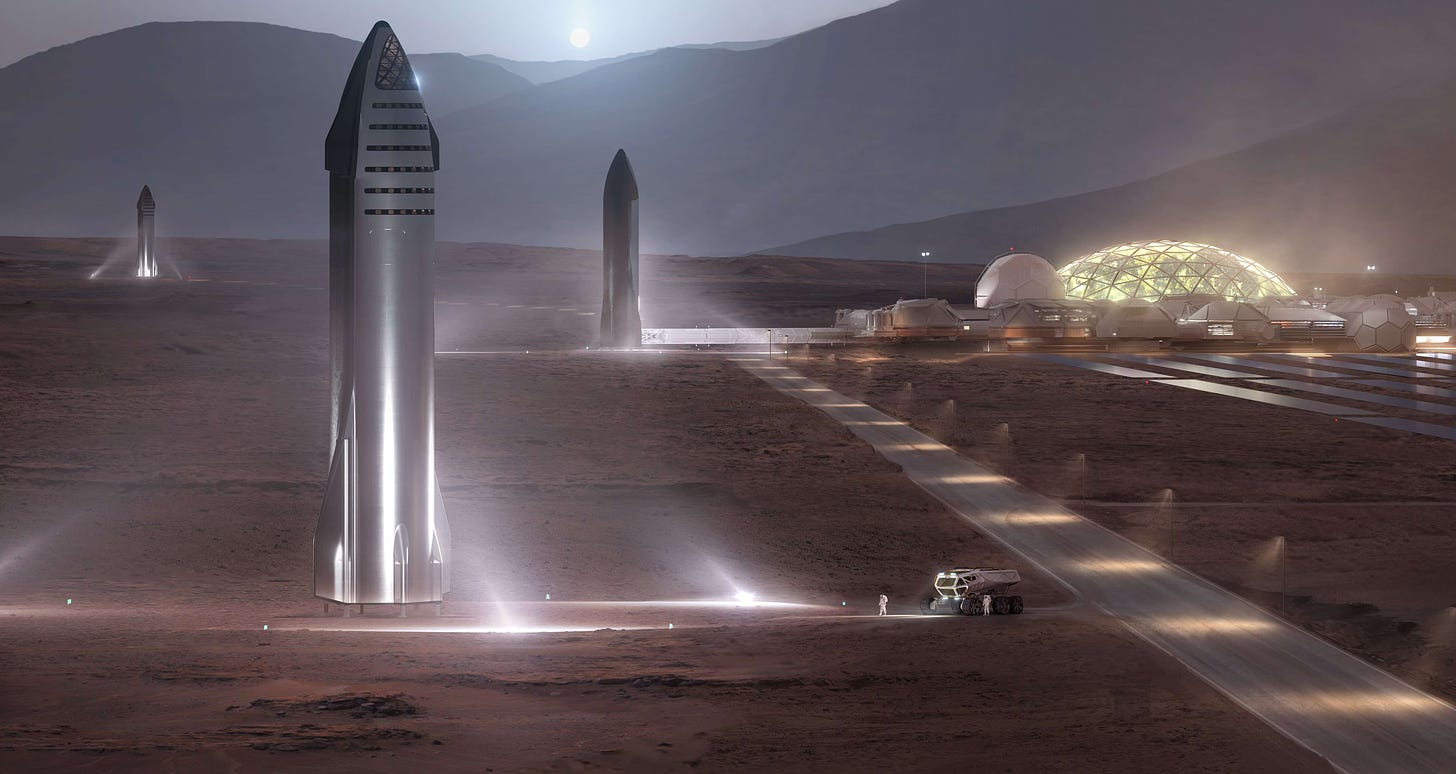The Future of AI, Mars, and Mobility
Today I'm writing about the potential data drought facing AI development, SpaceX's evolving plans to colonize Mars, and Tesla's upcoming unveiling of its highly anticipated robotaxi. These topics highlight the rapid advancements and challenges in the realms of artificial intelligence, space exploration, and autonomous transportation.
Is AI Heading Towards a Data Drought?
The artificial intelligence industry is grappling with a looming shortage of high-quality language data, which could significantly impact the development and advancement of AI systems. As AI models like ChatGPT consume vast amounts of data for training, the demand is outpacing the rate at which new data is being generated. Researchers predict that the stock of suitable language data could be exhausted as early as 2026, potentially slowing down AI progress.
To address this impending data drought, the AI community is exploring various strategies. These include improving algorithms to use existing data more efficiently, generating synthetic data tailored to specific AI models, and promoting federated data sharing. However, the scarcity of natural data sources is compounded by privacy and ethical concerns, as well as the risk of biased algorithms resulting from a lack of diverse and inclusive datasets. As entrepreneurs and technology enthusiasts, it is crucial to stay informed about these challenges and support innovative solutions to ensure the continued growth and responsible development of AI technologies.
SpaceX's Evolving Plans for Mars Colonization
SpaceX's ambitious goal of establishing a human presence on Mars has been a driving force behind the company's technological advancements and mission planning. Central to this vision is the development of the Starship launch vehicle, which has undergone significant testing and refinement in recent years. Despite facing challenges and setbacks, SpaceX has made notable progress, with the successful launch of its Starship rocket marking a major milestone towards its Mars aspirations.
Elon Musk, the visionary behind SpaceX, has recently unveiled plans to colonize Mars with 1 million settlers, emphasizing the importance of the Red Planet's ability to survive independently of Earth. While critics have questioned the feasibility and timeline of these plans, citing financing uncertainties and the harsh conditions on Mars, SpaceX remains committed to its mission. As the company continues to push the boundaries of space exploration, it is an exciting time for entrepreneurs and technology enthusiasts to witness the unfolding of this historic endeavor.
Tesla's Robotaxi Unveiling: A Glimpse into the Future of Autonomous Transportation
Tesla CEO Elon Musk has announced that the company will unveil its highly anticipated 'robotaxi' on August 8, 2024. This next-generation self-driving vehicle is designed from the ground up for autonomous operation, without traditional controls like pedals or a steering wheel. The robotaxi represents a significant step towards Tesla's long-term vision of creating a fleet of autonomous vehicles that could revolutionize ridesharing and personal transportation.
However, Tesla's journey towards fully autonomous driving has been met with skepticism and regulatory scrutiny. The company's existing Autopilot and Full Self-Driving features, while advanced, still require driver supervision, and there have been incidents involving these systems. As Tesla focuses on the robotaxi project, it is making a bold bet on the future of autonomous transportation. The success of this initiative will depend on the company's ability to overcome technical, regulatory, and safety challenges associated with fully autonomous vehicles. As entrepreneurs and technology enthusiasts, it is important to closely follow these developments and consider the potential implications for the automotive industry and society as a whole.




